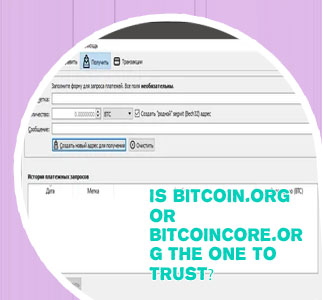- What's the price of bitcoin
- Bit price
- Baby bitcoin where to buy
- How does bitcoin make money
- Cryptocom transfer to wallet
- When will all btc be mined
- Cryptocurrency bitcoin price
- How many btc are there
- Solana crypto price
- Ore mine btc
- Will crypto bounce back
- Bitcoin price prediction for tomorrow
- Bitcoin cryptocurrency
- Buy physical bitcoin
- Crypto com not working
- Buy bitcoin cash
- Crypto interest
- Free dogecoin
- Cryptocom security
- Btc live price
- Crypto com support
- Crypto mining
- Buy cryptocurrency
- How does bit coin work
- Coinbase to invest all future crypto
- Google bitcoin
- Safemoon crypto price
- Bitcoin trend
- Algo crypto price
- Dogecoin volume
- Best crypto to buy
- How is crypto taxed
- Lightcoin price usd
- Coinbase win dogecoin
- Bitcoin mining free
- Buy tether
- Emax crypto price
- Crypto nft app
- How does btc mining work
- Where to buy new crypto coins
- Free btc
- How to buy dogecoin stock on coinbase
- Visa bitcoin to work with exchanges
- Create cryptocurrency
- How much to buy dogecoin
- Btc prices
- Doge crypto
- Shiba inu coin cryptocurrency
- How to transfer money from cryptocom to bank account
- Crypto exchange
- Way senate melted down over crypto
- Bitcoin apps
- How much is bitcoin
- Btc address lookup
- Squid game cryptocurrency price
- New crypto to buy
- Cryptocom verification process
- Time wonderland crypto
- Where to buy crypto
- How much is bitcoin today
- Cryptocom unsupported currency
- Cryptocom shiba inu
- Solo crypto
- Crypto com referral
- 1 btc in usd
- Ethereum nft whale
- Coinbase cryptocurrency prices

Is bitcoin open source
Bitcoin has been a hot topic of debate in recent years, with many wondering whether it is truly open source or not. To shed light on this issue, here are three articles that delve into the question of whether bitcoin is open source or not.
The Open Source Nature of Bitcoin: Unpacking the Myths and Realities

"The Open Source Nature of Bitcoin: Unpacking the Myths and Realities" delves into the intricate world of Bitcoin and its open-source nature. The book expertly explores the myths and realities surrounding Bitcoin, shedding light on its decentralized nature and the implications it has on the digital currency market.
One of the key takeaways from the book is the importance of open-source technology in the development of Bitcoin. By allowing anyone to view, modify, and distribute the source code of Bitcoin, the digital currency has been able to evolve and adapt to changing market conditions. This transparency also helps to build trust among Bitcoin users, as they can verify the authenticity of transactions and the security of the network.
Furthermore, the book highlights the role of the Bitcoin community in shaping the future of the digital currency. By encouraging collaboration and innovation, the open-source nature of Bitcoin has led to the development of new technologies and applications that have the potential to revolutionize the financial industry.
In conclusion, "The Open Source Nature of Bitcoin: Unpacking the Myths and Realities" provides valuable insights into the world of Bitcoin and its open-source technology. It is essential reading for anyone interested in understanding the inner workings of Bitcoin and the impact of open-source technology on the digital currency market.
Examining the Code: Is Bitcoin Truly Open Source?
In the world of cryptocurrency, the concept of open-source software is highly valued. Bitcoin, the pioneer of digital currencies, has long been touted as open-source, allowing anyone to view and contribute to its code. But is Bitcoin truly open source?
Upon closer examination, it becomes apparent that Bitcoin's code is indeed open source. This means that the code is publicly available for anyone to view, modify, and distribute. This level of transparency has been one of the key factors in Bitcoin's success, as it allows for constant peer review and improvement.
One of the main benefits of open-source software is the ability for developers to collaborate and innovate together. This has led to the creation of numerous Bitcoin-related projects and improvements, further solidifying the currency's place in the digital world.
However, it is important to note that while Bitcoin's code is open source, not all aspects of the cryptocurrency are completely decentralized. There are still centralized entities that play a role in the Bitcoin ecosystem, such as mining pools and exchanges.
Overall, Bitcoin's open-source nature has played a significant role in its growth and adoption. As long as the community continues to support and contribute to the code, Bitcoin will likely remain a force to be reckoned with in the world of finance.
Decentralization and Transparency: The Case for Bitcoin as an Open Source Currency
Bitcoin, the world's first decentralized digital currency, has revolutionized the way we think about money. By utilizing blockchain technology, Bitcoin operates without the need for a central authority, such as a government or a financial institution. This decentralized nature of Bitcoin ensures transparency in every transaction, as all records are stored on a public ledger that is accessible to anyone.
One of the key advantages of Bitcoin as an open-source currency is the transparency it provides. Every transaction made with Bitcoin is recorded on the blockchain, a decentralized and immutable ledger that is viewable by anyone. This level of transparency ensures that all transactions are secure and verifiable, eliminating the need for trust in third parties.
Furthermore, Bitcoin's decentralized nature means that no single entity has control over the currency, making it resistant to censorship and manipulation. This provides users with a sense of financial freedom and autonomy that is unparalleled in traditional financial systems.
Overall, the case for Bitcoin as an open-source currency is a strong one. Its decentralized nature and transparency make it a powerful tool for financial empowerment and innovation. For individuals looking to take control of their finances and break free from the constraints of traditional banking systems, Bitcoin offers a promising alternative.